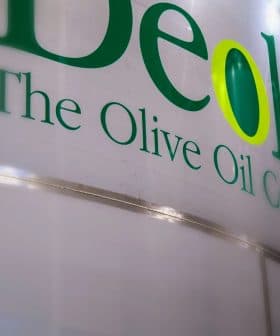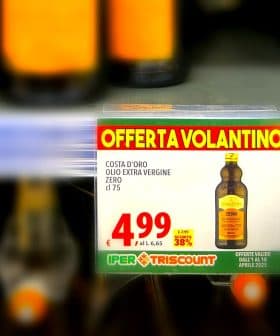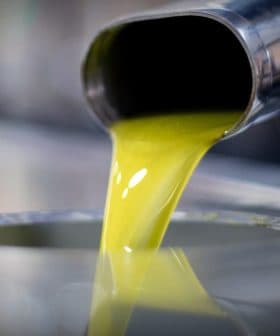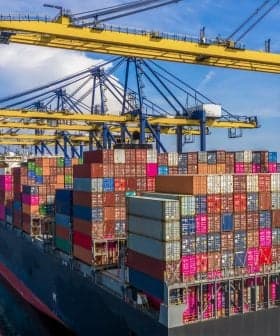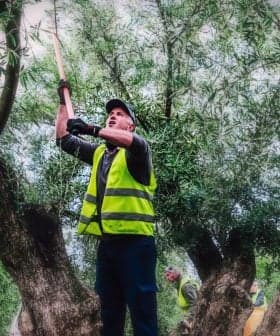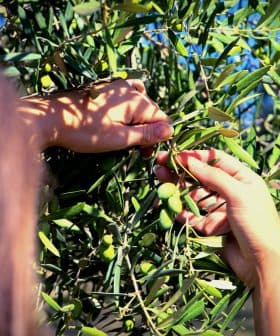Producers in Spain Cap Strong Harvest with Quality Awards
Spain's olive industry thrived in 2025, producing 1.41 million metric tons and winning 93 awards at the NYIOOC World Olive Oil Competition.
 Producers across Spain celebrated 93 awards at the 2025 NYIOOC World Olive Oil Competition. (Photo: Aires de Jaén)
Producers across Spain celebrated 93 awards at the 2025 NYIOOC World Olive Oil Competition. (Photo: Aires de Jaén) Spanish olive farmers, millers, bottlers, and distributors won 93 awards at the 2025 NYIOOC World Olive Oil Competition after a successful 2024/25 harvest following years of poor production due to high spring temperatures and drought. Producers in Andalusia, as well as other regions in Spain, celebrated their success at the competition, with a focus on maintaining high-quality extra virgin olive oil for international markets.
Olive farmers, millers, bottlers and distributors in Spain capped off a fruitful 2024/25 harvest by winning 93 awards at the 2025 NYIOOC World Olive Oil Competition.
A wet and mild winter and spring in 2024 provided relief to Spanish producers after consecutive years of high spring temperatures and drought resulted in two historically poor harvests.
Spain produced 1.41 million metric tons of olive oil in the 2024/25 crop year, significantly more than the 665,800 tons produced in 2022/23 and 852,600 tons the year after.
“Thankfully, this year we recovered production and quality, a very important combination that is allowing us to win back customers who, due to the cost of the last two seasons, had reduced their consumption,” said Rosa López, the company director of Aires de Jaén.
The Andalusian producer earned a fourth consecutive Gold Award for its Consum brand, a medium-intensity blend.
“For Aires de Jaén, winning an international award, particularly a Gold in New York, is a source of pride and recognition for our work promoting high-quality extra virgin olive oil,” López said. “The teamwork of a highly qualified staff, perfectly ripe fruit and state-of-the-art machinery is allowing us to produce extra virgin olive oil recognized worldwide.”
See Also:The best extra virgin olive oils from SpainShe added that winning awards at the NYIOOC is especially important for companies seeking to export to the United States.
“The United States is a very important market for Spain; it is the country that imports the most olive oil, and being able to showcase our extra virgin olive oil with an award is important, as the NYIOOC is a very important entry point,” López said.
Elsewhere in Andalusia, producer and bottler Goya en España celebrated three Gold Awards for its Goya Organic, Goya Robusto and Goya Único brands.
“Each campaign is a new challenge, and achieving these types of results confirms that we are on the right path,” said Antonio Carrasco, Goya en España’s general manager. “It’s not just about winning awards, but about reaffirming our commitment to offering a superior quality product to consumers
Carrasco added that the 2024/25 crop year had been challenging in the company’s main production areas, with the impacts of the prolonged drought and high prices at origin creating a range of challenges for the company.
Off the back of a challenging harvest, Carrasco said winning at international olive oil competitions is especially important, not just for Goya en España but for Spanish producers in general.
“Spain is the world leader in olive oil production, but sometimes that position isn’t clearly reflected in international consumer perceptions of quality,” he said. “Competitions like the NYIOOC are a great help in raising awareness of the level of excellence that many brands, like Goya, bring to the market.”
“They are an important boost for distributors and consumers and strengthen the image of Spanish extra virgin olive oil as a gourmet, healthy and sustainable product,” Carrasco added.
Overall, producers from the southern Spanish region of Andalusia, the world’s largest olive oil producer by a significant margin, combined to win 60 awards at the World Competition.
In the southeastern Andalusian province of Almería, the team behind OleoAlmanzora celebrated winning its debut World Competition accolade, a Silver Award for a medium Arbequina.
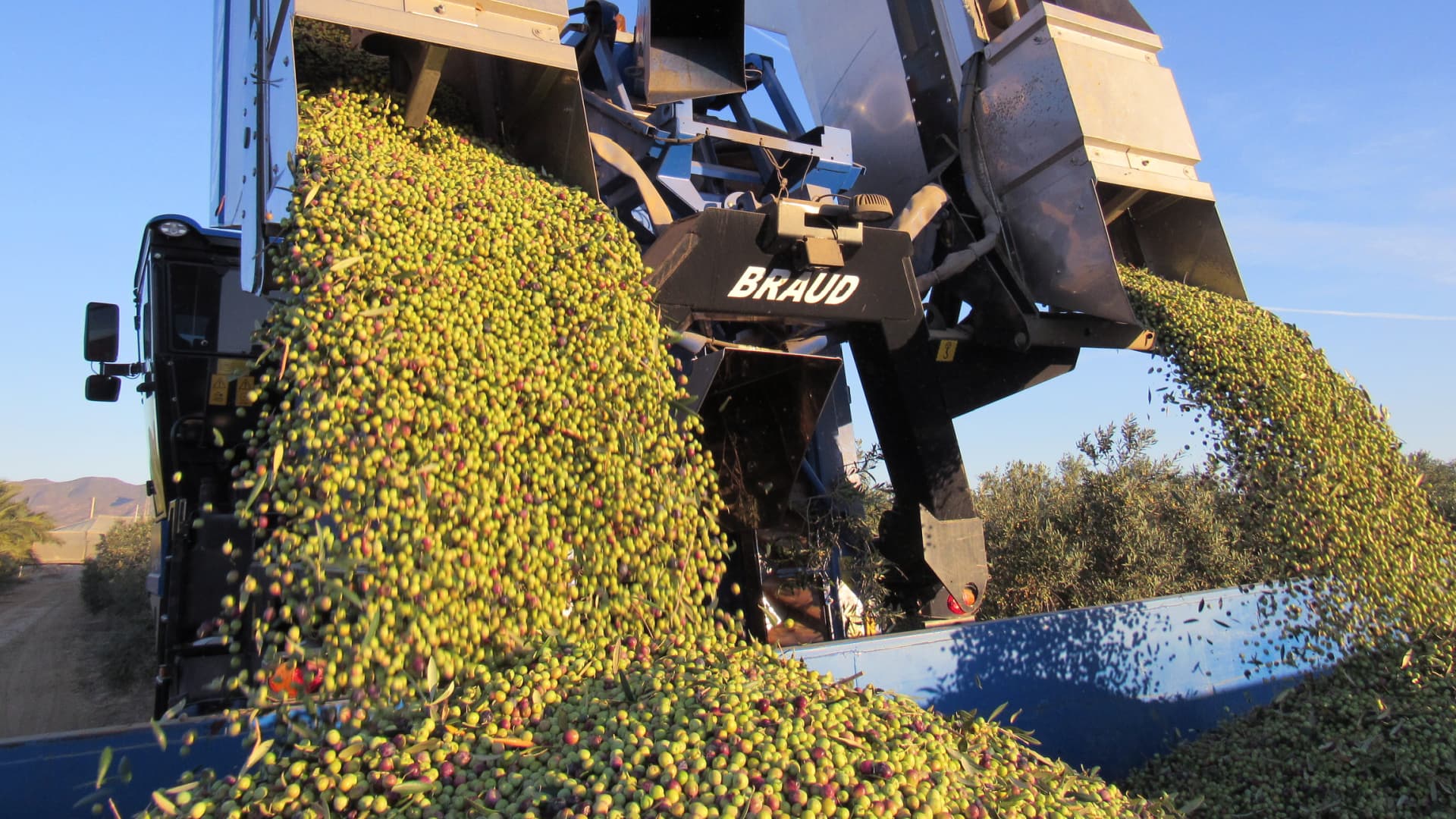
OleoAlmanzora celebrated a debut award at the World Competition after a slightly lower than expected harvest. (Photo: OleoAlmanzora)
“For us, it’s an honor to have achieved this distinction,” said Sidoro Haro Rubio, head of sales and marketing. “Winning the medals is very important, both in terms of marketing and image in the country where we received them, but also at the provincial level, as we continue to consolidate our product as an image of gourmet quality in Almeria.”
While López said Aires de Jaén had a very good harvest, Haro Rubio admitted that the company’s production was lower than expected in 2024/25.
“The challenges are always many: monitoring the olive grove year-round, ensuring the olive trees have enough food and water, treating the olives well, and during harvesting, remaining faithful to our principles of strict control over the harvesting and processing temperatures, harvesting the fruit very early, being very fast in the milling process and continuing to focus on ensuring the correct temperature,” he said.
Andalusia is responsible for the majority of Spanish olive oil production. Still, farmers, millers and distributors in five of the country’s other regions also celebrated winning World Competition accolades.
Two producers in the Balearic Islands and Extremadura combined to win two awards at the 2025 NYIOOC. Meanwhile, 12 producers and distributors combined to win 17 awards in Catalonia.
Eight producers in the central region of Castilla-La Mancha won ten awards, including Olivapalacios. The Ciudad Real-based company earned two Gold Awards for an Arbequina and a Picual.

Ciudad Real-based Olivapalacios continued its legacy of success at the NYIOOC with two Gold Awards. (Photo: Olivapalacios)
“These awards act as an indisputable seal of quality and attract the attention of consumers and distributors; it can also justify a higher price for the product, recognizing the excellence and effort behind it,” export manager Luís Rubio said.
While he acknowledged that the ongoing drought and a few heat waves at critical moments resulted in increased irrigation and other challenges, Rubio said the company had a very good harvest.
“For us, it was a good harvest; the quality was excellent, and in terms of quantity, there was a slight increase compared to the previous year,” he said.
In northern Spain, three producers in Navarre, including the team at Bodega Nekeas, combined to win four awards.
Spain’s northernmost producer of scale, boasting 215 hectares of olive groves, earned a Gold Award for its endemic Arróniz monovarietal and a Silver for an Arbequina.

In the northerly Nekeas Valley, Bodega Nekeas celebrates its particular terroir despite its challenges. (Photo — Bodega Nekeas).
“Our olive grove and vineyard are in the Nekeas Valley, the northernmost area in Spain for olive growing,” export manager Carlos Biurrun said. “We are also located at an altitude of 420 to 650 meters, which makes for harsher cold and rain conditions. We believe these very conditions create the unique characteristics that make our oils regularly awarded.”
As a result of the climate and elevation, he said the company’s main challenge is harvesting the Arbequina in early November before the nighttime frost arrives, which can cripple a harvest.
“Interestingly, Arróniz, the native variety, is not sensitive to frost and can be harvested later,” Biurrun said. “I think these awards give good visibility to extra virgin olive oil produced in Navarre, especially to the unknown native variety Arróniz. Navarre has a long tradition of gourmet food production, and extra virgin olive oil is part of Navarre’s rich offering.”
Back in Andalusia, the founder of Villa Gaspar celebrated winning a Gold Award for its medium Picual, its third World Competition recognition since 2022.
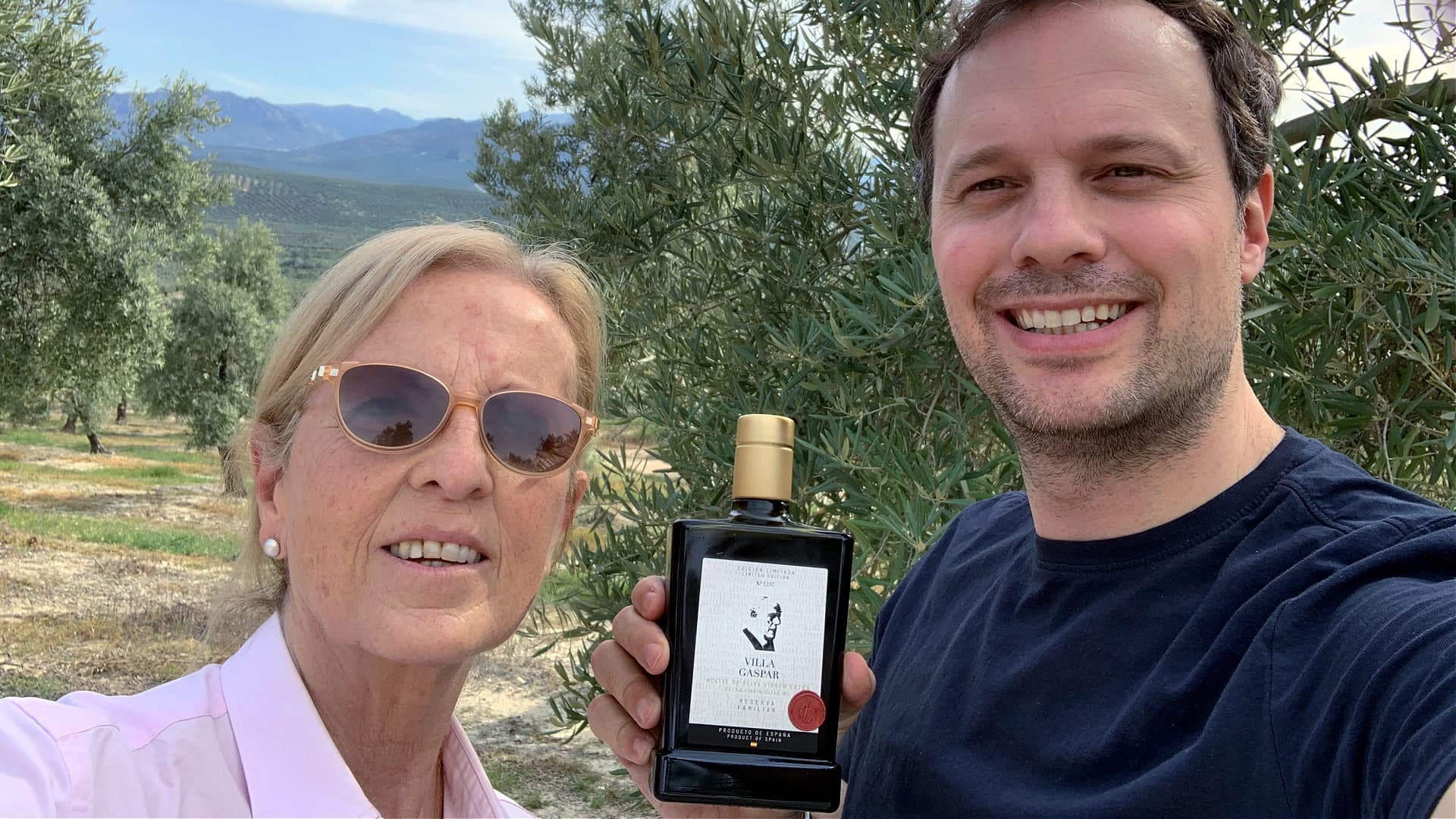
Villa Gaspar overcame higher labor and agricultural input costs to once again produce a world-class quality Picual monovarietal. (Photo — Villa Gaspar)
“Winning a Gold Award at the NYIOOC was an incredible honor and deeply emotional for us,” José Javier Anguís Horno said. “Receiving such a prestigious recognition validates all the passion, hard work, and care we put into every step of our process. It’s a huge motivation to continue striving for excellence.”
The Úbeda-based producer said the 2024/25 harvest marked a strong recovery after two incredibly challenging seasons.
“We finally saw relief from the prolonged drought, and unlike previous campaigns, we were not impacted by extreme weather events such as the hot Saharan winds that can devastate flowering,” Anguís said. “As a result, both production and quality improved significantly.”
However, he said the campaign came with plenty of challenges, including higher costs for agricultural imports and an ongoing labor shortage, which made it more difficult to harvest quickly and efficiently.
See Also:2025 NYIOOC Coverage“Looking ahead, we anticipate a weaker or mid-range production due to the natural cycle of the olive tree, known as vecería, where a strong harvest year is often followed by a lighter one,” Anguís said. “While it’s too early to predict the exact outcome, we’re managing the groves carefully and focusing on maintaining tree health and fruit quality.”
Anguís’s Andalusian peers indicated that current conditions make them optimistic, but the summer conditions would play a significant role.
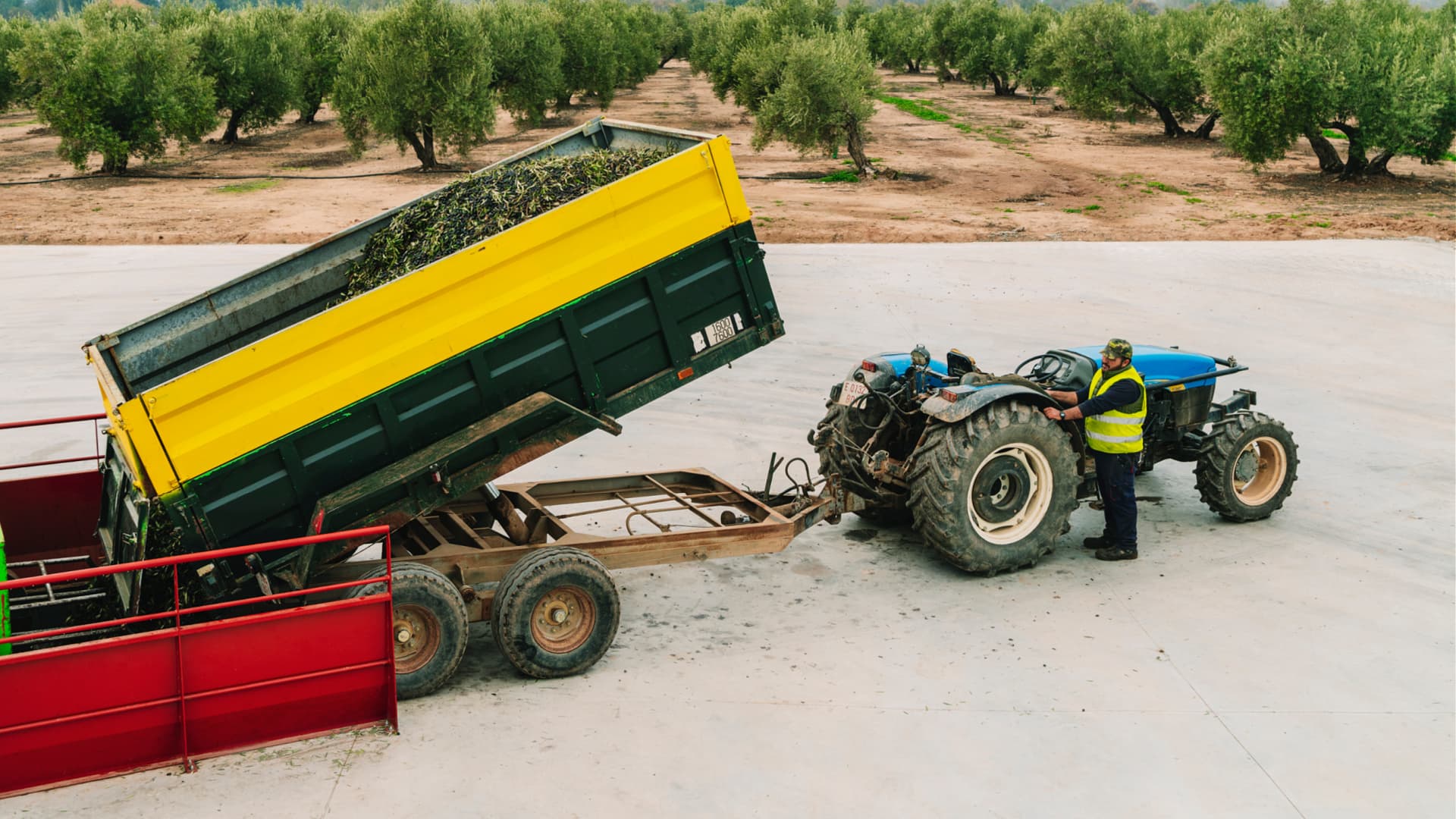
After a fruitful 2024 harvest, the producers at Aires de Jaén anticipate another good one later this year. (Photo: Aires de Jaén)
“We’ve had a rainy winter, and spring is also bringing us very good rain. For now, everything points to the 2025/26 season being better than the 2024/25 season,” López of Aires de Jaén said. “Even so, we have to wait because we are always exposed to adverse weather conditions.”
“Everything looks very good right now, although we have to wait and see because of the climate in Almeria, you never know, and we have to be constantly alert,” Haro Rubio of OleoAlmanzora added. “The flowering is wonderful, so right now we’re very happy with what we see.”
Based on current conditions in the groves outside Andalusia, producers expect another good harvest in 2025/26.
“We anticipate a very good harvest in terms of quantity and quality, considering the current condition of the olive trees,” Rubio of Olivapalacios said.
“The olive grove is doing well. We’ve had a lot of rain since autumn 2024, and it’s continuing,” Biurrun of Bodega Nekeas concluded. “We hope the temperature rises and calms down by June. The flowering season and average temperature will determine the harvest, as there’s usually excess water here (except in 2022).”
Share this article


